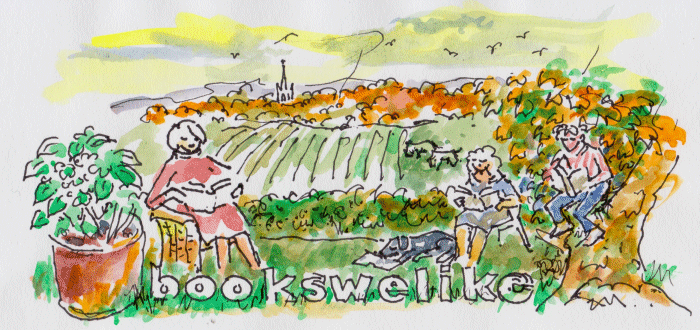|
Butcher's Crossing by John Williams |
Written some years before Stoner (bwl 71 & 72), this less mature but equally interesting work is set in the virgin territory of 1873 Kansas. The young protagonist, filled with Emersonian romanticism, finds himself on a buffalo hunt led by a figure as obsessive as Melville's Captain Ahab. The story, while it describes extraordinary physical courage and resourcefulness on one level, is an examination of the nature of desire. And for me, it is ultimately about hubris and defilement.
(bwl 79 Winter 2016 - Fiction) |
|
|
Clock This by Trevor Baylis |
Refreshingly unpretentious autobiography of the man who invented the clockwork radio. Typical Secondary Modern fodder - hopeless at exams but 'good with his hands' - he made good, helped by a loving home, a somewhat obsessional personality, and a patient and encouraging dad (with a glorious workshop in his shed). Optimistic and strangely humbling.
(bwl 4 July 2000 - Non-Fiction) |
|
|
In Parenthesis by David Jones |
Don't read this long prose-poem too carefully - let the words wash over you for a filthy, lice-ridden and sodden immersion in the WW I trenches of northern France - raw, lyrical, crude, delicate and assaulting. Poet/artist David Jones transmutes his own experiences into something extraordinary using allusions to myth, the Bible, Shakespeare and Coleridge's Rime of the Ancient Mariner. It's not easy reading, but for a real sense of the terror, and indeed the poetry, of war, you can't do much better.
(bwl 78 Autumn 2015 - Poetry) |
|
|
Narconomics: How to Run a Drugs Cartel by Tom Wainwright |
If you're interested in why the global "war on drugs" is failing so catastrophically, this is the book to read. Wainwright - of The Economist - examines how the cartels' business model compares to that of legitimate business - and how it differs. He argues cogently that only by seeing drugs trafficking in economic terms can we hope to combat it ('Just say no' isn't really enough). Fast moving and accessible, it raised many a wry grunt from me.
(bwl 91 Winter 2019 - Non-Fiction) |
|
|
Narrow Dog to Carcassonne by Terry Darlington |
In the best tradition of British eccentrics, Terry, wife and whippet Jim set off on a trip by narrow boat from Stoke-on-Trent to Carcassonne in southern France. And yes, they do cross the Channel in it, but the real fun of the book is Darlington's wry description of their adventures in less-travelled parts of France, and in particular the love-hate relationship between the English and the French. Great holiday read for Francophiles or Francophobes.
(bwl 45 April 2008 - Non-Fiction) |
|
|
Peacetime by Robert Edric |
Set on the Fenland coast in 1946, with its limitless skies and limited outlook, an engineer, an outsider, comes to oversee the demolition of the now defunct gun emplacements. Local suspicions are justified when he befriends a Dutch Jew and a German POW. This is a compelling portrait of loss, the loneliness of grief, and the narrowness of lives moulded by forces as impersonal as the wind and waves that perpetually undermine and reshape the coastline.
(bwl 21 November 2003 - Fiction) |
|
|
Stasiland - Stories from behind the Berlin Wall by Anna Funder |
An account of Cold War Berlin, told through people on both sides of the political divide. Moving stories of victims of the regime are interspersed with the author's own investigations. But most chilling are the accounts of the perpetrators, which give a real insight into how the Stasi was so successful. If you enjoyed the 2006 film 'The Lives of Others', read this to find out why that story could never have happened.
(bwl 45 April 2008 - Non-Fiction) |
|
|
The Juryman's Tale by Trevor Grove |
A Fleet Street journalist serves on the jury for a long kidnapping case at the Old Bailey. Thoughtful and thought provoking rather than sensationalist or shallow, this should be read by anyone with an interest in the English criminal justice system. It's a thumbs up for juries - despite their shifting dynamics, they are moulded by the process into a sum greater than its parts, though the system they work within cries out for reform.
(bwl 9 June 2001 - Non-Fiction) |
|

